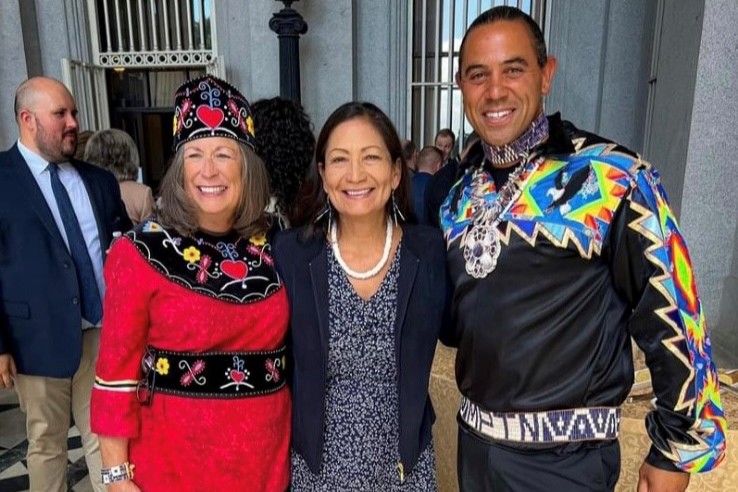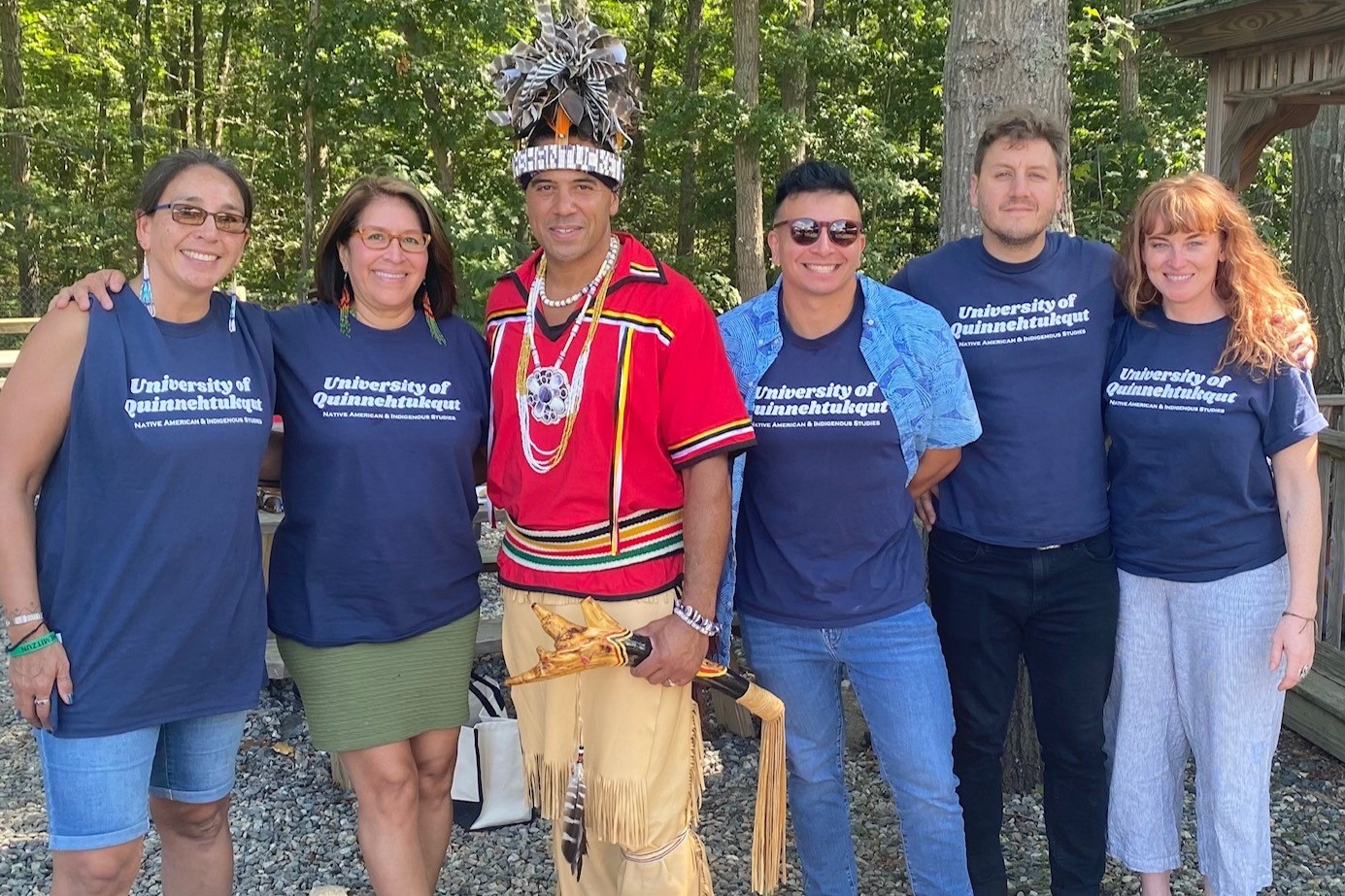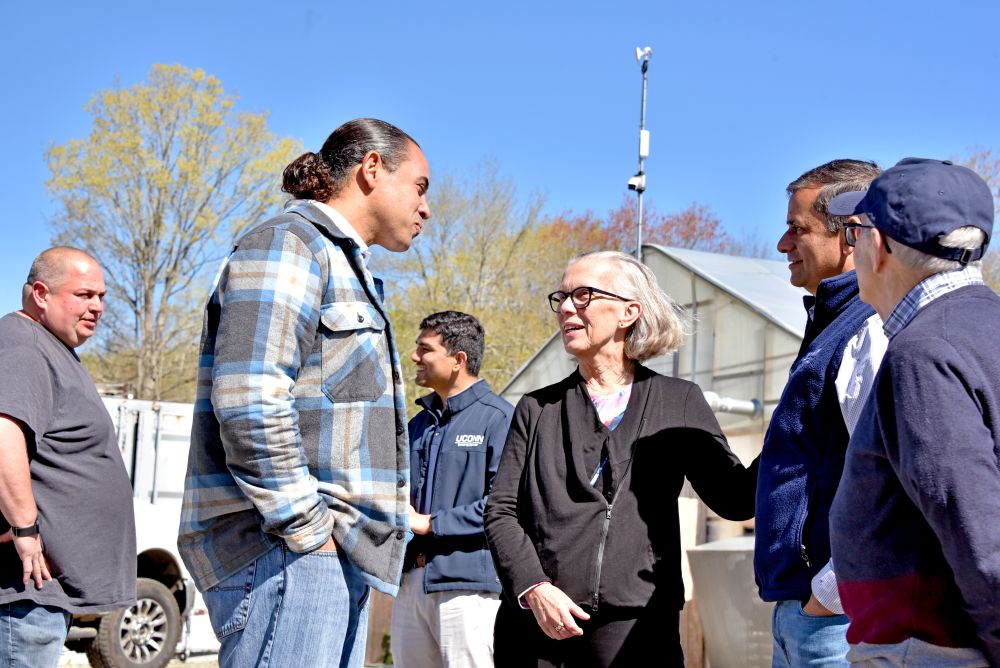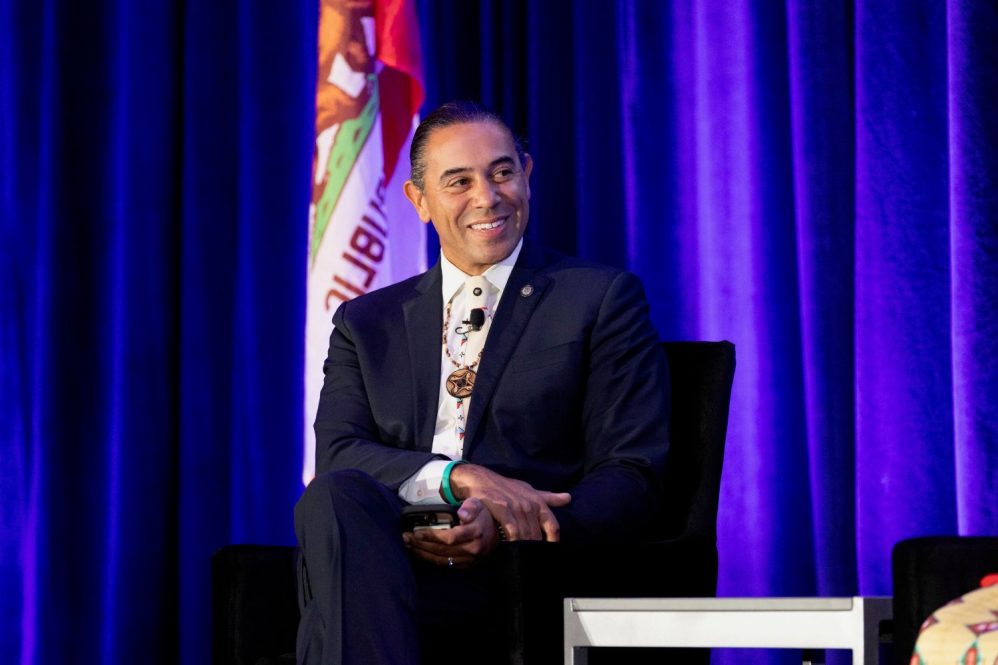Rodney Butler, Chairman of the Mashantucket Pequot Tribal Nation, never aspired to become a Tribal leader. Yet, he has served on tribal council for over two decades, overseeing tremendous progress for his tribe.
Butler ‘99 (BUS) will deliver the commencement address for the College of Agriculture, Health and Natural Resources (CAHNR) on May 10, 2025. He will also be awarded an honorary degree “in recognition of extraordinary and lasting distinction.”
“I can’t think of someone more deserving and better suited to usher our class of 2025 into their next chapter,” says CAHNR Dean Indrajeet Chaubey. “Rodney’s ability to make a difference through innovation, collaboration, and a drive for the common good is remarkable. It’s a model we can all look to and learn from.”
Butler studied finance at UConn and initially intended to work on Wall Street.

“I’ve had my own savings account since I was four or five years old, and I’ve always been an avid investor,” Butler says. “The stock market was pretty steady in the 90s and my father set me up with a small investment account and I was dabbling with that and growing that, and I just fell in love with finance and analytics.”
Butler was also a member of the UConn Football team, playing defensive back during his undergraduate years.
After graduation, Butler returned to Mashantucket Pequot Tribal Nation to work as a financial analyst for Foxwoods Resort Casino. He later served as the interim CEO of Foxwoods in 2018.
“Coming out of college and coming back to work for my tribe, it was just such an incredible honor to be able to do that, to give back to my community and work for my family,” Butler says.
Butler transitioned to managing the Tribe’s non-gaming assets, like hotels, golf courses, and a pharmaceutical company. Through this work, Butler joined various governmental committees that support the Tribal Council.
“I enjoyed it, and I was making contributions,” Butler says. “Even then, though, I didn’t think I would get into tribal leadership.”
When Tribal Council elections rolled around in 2004, a cousin encouraged Butler to run. And he won.
Two weeks later, Butler’s first child, his son, was born.
“It gave me a much different perspective,” Butler says. “Yes, I’m doing this for my larger tribal family. But what I’m working for every single day is that baby at home and making sure that I’m doing right by him. It kept me humbled, grounded, and focused on long term success for the Tribe.”
After seeing the Tribe through the 2008 financial crisis as its treasurer, Butler was elected to his first term as chairman in 2010. He has held the position ever since.

“Because [my tribe] it’s my family, it’s personal, and every day knowing that I’m working to make a life better for them, and the tens of thousands of people who rely on Pequot, that’s very, very rewarding and keeps you driven,” Butler says.
Despite his profile as a leader, Butler credits everything he does to community efforts.
“What I do, especially in this position, is all about teamwork and working together for a collective success,” Butler says.
The Mashantucket Pequot Nation was federally recognized in 1983. Since then, the tribe has made great strides developing their economy and community infrastructures.
“What we’ve done in the last 40 years as a Tribal Nation, going from rocky ledge and wooded land, raising pigs and producing maple syrup, to a billion-dollar enterprise with multiple business units and a thriving community…to me that’s the accomplishment,” Butler says. “There’s been so much growth in a very short period of time that you just can’t help but be proud of what this community has accomplished.”
Since 2017, the Tribe has partnered with UConn Extension to develop their agricultural infrastructure.
This partnership has been supported by a Federally Recognized Tribes Extension Program grant through the U.S. Department of Agriculture National Institute of Food and Agriculture program.
This collaboration stemmed from the initiative of tribal members who wanted to develop agriculture to support the tribe’s food sovereignty, or the ability of a community to feed itself.
“It initially was just a labor of love by my cousins Jeremy Whipple and Councilor Menihan with a dream to achieve food sovereignty,” Butler says. “Their efforts and the relationship with UConn kept blossoming organically into a thriving agriculture department that has become a core initiative for our community.”
Meechooôk Farm on the Mashantucket Pequot Tribal Nation is now a vibrant food producer for the tribe. The farm includes produce, cattle, hydroponic tunnels, and a sugar shack.
In 2021, the Tribe established the Mashantucket Pequot Tribal Nation Department of Agriculture.
“The passion of everyone at UConn for this and the commitment that UConn has made to the tribe and vice versa – these are lifelong friendships that just continue creating success as we grow our agriculture initiatives here,” Butler says.

Mashantucket Pequot recently hosted a food sovereignty conference with more than 30 tribes from the Northeast represented, highlighting their relationship with UConn and how it has supported the tribe’s food sovereignty efforts.
“We as a tribe have the ability to provide for our own in a way that we didn’t prior,” Butler says. “We’re thankful that UConn has been committed to helping us get to this level of self-resilience from a food perspective, and we’re continuing to build on it.”
This work is one example of many that Butler has seen throughout his life and career that highlights the importance of collaboration.
Butler encourages this year’s graduating class to remember, as he has, that everything is built through working with others.
“I live through the notion that people are all so interconnected and you have to realize how much we need each other,” Butler says. “Real success is pulling others in, lifting them up, working together, and having that shared success.”
Follow UConn CAHNR on social media



